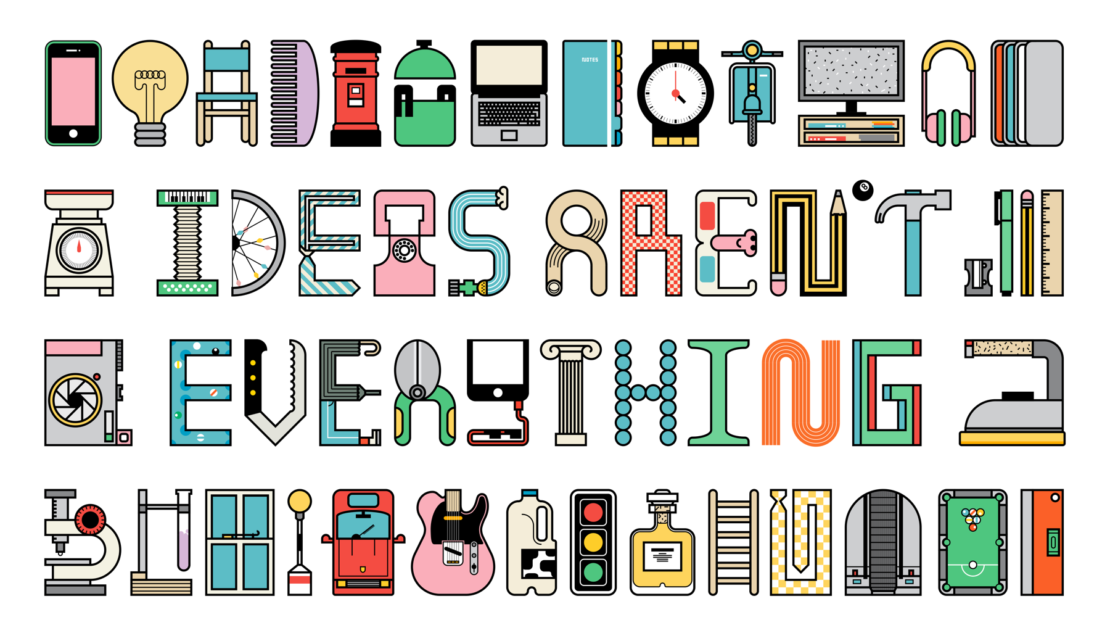
Ideas aren't everything: Naivety
Read previous instalments in this series: Ideas aren't everything: Paranoia; Hubris; Cash; Corporations
People blessed with inventive flair aren't necessarily any good at admin. Indeed, form-filling is likely to be one of the last things an inventor wants to do, but unfortunately the legal process requires it.
Today, the details of how to register patents are available to anyone with time to search for them online, but in the past inventors have demonstrated a tragic lack of awareness of patent law, coupled with a touching belief that strangers will help them rather than screw them over. In 1884, a tinsmith from New Zealand called John Eustace came up with a brilliant concept: a removable, airtight lid for a metal container – the kind we now see on paint tins. He quickly patented it in his home country, and sent the design to Britain to get a template made so he could manufacture them. But with his invention unprotected by law in the UK, British companies proceeded to steal it. There was nothing Eustace could do.

A few years earlier, in 1868, Margaret Knight came up with an idea for a machine to make flat-bottomed paper bags while she was working in a Massachusetts paper bag plant. She had a working model built in a local machine shop, but a man working there, Charles Annan, stole the design and filed for the patent himself. Knight challenged this and got her patent three years later – but the lesson was clear: get the patent filed before getting the thing made.
Gordon Gould, the American physicist, also laboured under the misapprehension that an invention had to be built before you could patent it; as a consequence he delayed on filing his invention of the laser, by which point fellow physicists Charles Lownes and Arthur Schawlow had got there first. Gould believed that they had stolen his invention, but that view has been challenged down the years. Borrowed ideas are endemic in science – some of them conscious, some not – and it's usually a mistake to link discoveries to one person and one moment. But patent law encourages us to make that mistake, and to consider Gould a failure for not getting the admin done.
People blessed with inventive flair aren't necessarily any good at admin
We may point the finger at inventors and chastise them for their failings, but some of them simply aren't that bothered. In 1826, British chemist John Walker invented the match after stumbling across a combination of combustible chemicals that would stick to wood. He sold a few boxes, but being fairly well off he didn't bother patenting it.

The story of Charles Goodyear and the vulcanisation of rubber is characterised by a familiar tale of theft; Goodyear sent samples to Britain without filing for a patent first, and rubber magnate Thomas Hancock reverse-engineered those samples and filed for his own, denying him the British market. But in the words of American author John Gordon, Goodyear was "a dreamer, careless of his appearance and indifferent to money."
There's this assumption that fortune and fame lie behind many inventors' efforts, but some die poor, having made little effort to exploit their work for financial gain. Izrael Staffel died in poverty in 1885 in Warsaw, having invented various calculating machines, a ventilator fan, an anemometer, apparatus to analyse alloys, a two-colour printing press and much else besides, without patenting a single one. Staffel didn't screw up; he was simply driven by something more noble – if ultimately self-destructive.
In 1979 Dan Bricklin invented the spreadsheet. Very early on, his sold his program to Lotus. It morphed into 1-2-3, and finally into Excel, netting Bill Gates a fortune. But Bricklin is OK with that. "I'm not rich because I invented VisiCalc," he once said, "but I feel that I've made a change in the world. That's a satisfaction money can't buy."